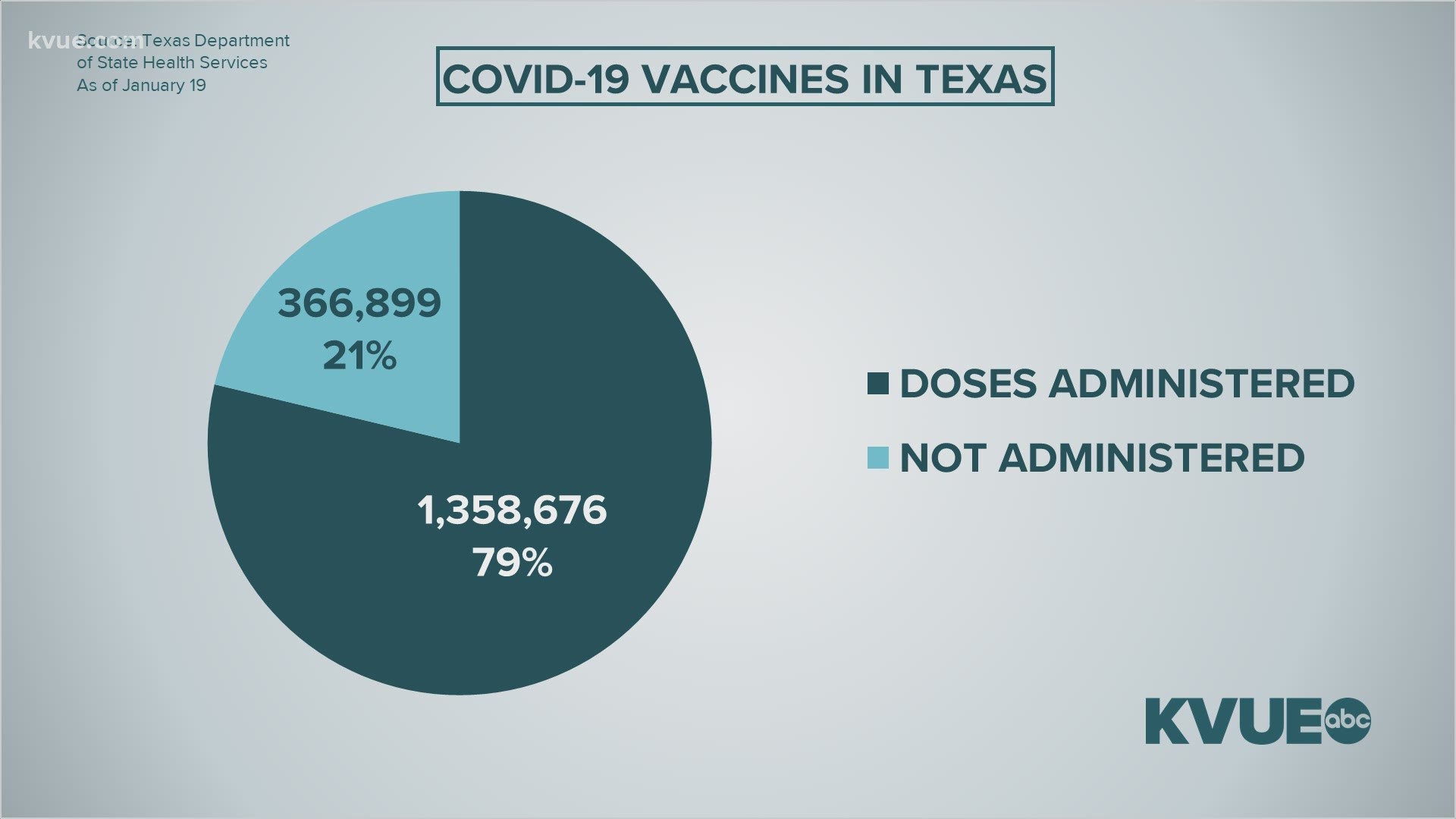AUSTIN, Texas — On Friday, Austin Public Health (APH) said COVID-19 vaccine supply is still extremely limited and it could take months to vaccinate the community in Austin and Travis County.
As of Thursday, APH has provided 18,427 vaccines to the community, which has a population of around 1.2 million.
“One thing that is certain is that we don’t have enough vaccine for our community,” said APH Director Stephanie Hayden-Howard. “We are asking for you to be patient with us.”
Hayden-Howard said there are 129,438 people over 65 years of age living in Travis County. APH has only received 1% of the vaccine that can cover Travis County, she said.
Travis County Interim Health Authority Dr. Mark Escott said until people are vaccinated effectively, the community needs to focus on safety precautions to stop the spread of coronavirus.
While active cases and hospitalizations from COVID-19 remain high in the community, Dr. Escott said the metrics are showing signs of improvement.
“We've done a great job over the past couple of weeks of flattening the curve,” he said. “The curve is continuing to flatten, and we're seeing some decline in our hospital numbers, in our ICU numbers. So what you are doing is working, but we can't stop here. We've got to continue those protections. We have to continue to stay vigilant so that we can drive the numbers down and we can allow us more time for vaccine to be available and get into the arms of our community.”
Dr. Escott said APH would rather struggle with the issue of trying to vaccinate more people than having to find more staff and beds because hospitals are overwhelmed.
APH Chief Epidemiologist Janet Pichette said the county is currently at a point of a “perfect storm,” with a surge in all operations related to the county’s COVID-19 response.
Case investigations and medical hotline numbers are operating at full capacity, while isolation facilities, testing and vaccination resources are all close to capacity as well, she said. The county is operating an alternative care site at the Austin Convention Center as hospital resources are still stretched thin.
“You need to continue to follow those prevention measures that we always say, and that's continuing to wear a mask, ensuring that you’re social distancing and, if you're sick, you need to stay home so that you don't infect anyone else – and just be safe out there … Limit your activities,” said Pichette. “If you have essential activities that need to happen, that you need to do your grocery shopping, make sure that you're doing in a safe manner.”
PEOPLE ARE ALSO READING:

